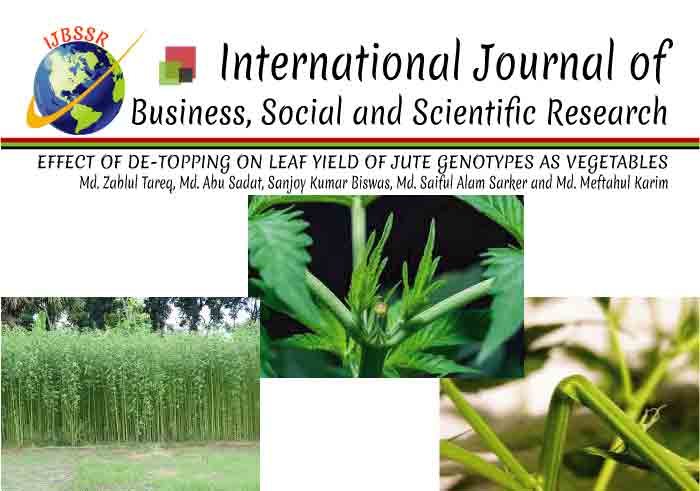EFFECT OF DE-TOPPING ON LEAF YIELD OF JUTE GENOTYPES AS VEGETABLES

In Bangladesh, number of leafy vegetables is
very limited in the early summer. Most of the Bangladeshi people cannot afford
vegetables due its higher price during that time. However, jute leaf can
fulfill this demand and yield of jute leaf need to be increased. Therefore, an
experiment was conducted at the research field in Jute Agriculture Experimental
Station, Manikganj, during the month of April to June, 2020 in order to observe
the effect of de-topping on leaf yield of jute genotypes as vegetables. De-topping
showed the positive effect on number of branches (3.3 branches/ plant), number
of leaves (55.9 leaves/ plant) and total leaf weight (37.9 g/ plant). Plant
height was comparatively lower in de-topped jute plant, however plant base
diameter was not affected. De-topping also affected jute genotypes
significantly. Although de-topping did not affect the branching in jute
genotypes but O-72 gave the highest leaf weight (35.8 g leaves/ plant) compare
to the O-9897 and Accession-3840. Interaction analysis also found that
de-topping increased total leaf yield in O-9897 and O-72 genotypes. Results
revealed that de-topping can meet up the increasing demand of leafy vegetables
through increasing yield of jute leaves.

